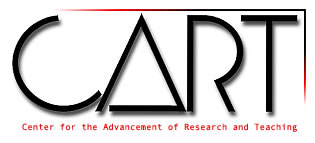Rhetorical Sovereignty/Rhetorical Alliance: Engaging Native American Studies at BSC
Location
Hart 114
Start Time
13-5-2010 1:40 PM
End Time
13-5-2010 2:40 PM
Description
(Mis)representations of the Indians pervade the Western worldview and are disseminated to the public. This panel explores representations of Native peoples, how students learn about local Natives and communities, and, in thinking about the role the brain plays in culture contacts, how students respond to Native literature. Joyce Rain Anderson discusses changing representations of Metacom (King Philip). From an early engraving by Revere to Forrest’s Metamora portrait in the National Gallery, Metacom has been reviled and venerated in visuals and print. John Kucich looks to translate complicated issues of native textuality, identity, and sovereignty to a broader audience with students exploring local Native knowledge, history, and presence. Benjamin Carson places current research in neuroscience in dialogue with James Welch’s Fools Crow, and thinks about how his students respond to literature by an “Other,” to think through the challenges faced by educators who teach in and about the “contact zone.”
Rhetorical Sovereignty/Rhetorical Alliance: Engaging Native American Studies at BSC
Hart 114
(Mis)representations of the Indians pervade the Western worldview and are disseminated to the public. This panel explores representations of Native peoples, how students learn about local Natives and communities, and, in thinking about the role the brain plays in culture contacts, how students respond to Native literature. Joyce Rain Anderson discusses changing representations of Metacom (King Philip). From an early engraving by Revere to Forrest’s Metamora portrait in the National Gallery, Metacom has been reviled and venerated in visuals and print. John Kucich looks to translate complicated issues of native textuality, identity, and sovereignty to a broader audience with students exploring local Native knowledge, history, and presence. Benjamin Carson places current research in neuroscience in dialogue with James Welch’s Fools Crow, and thinks about how his students respond to literature by an “Other,” to think through the challenges faced by educators who teach in and about the “contact zone.”

Comments
Moderator: Suzanne Miller